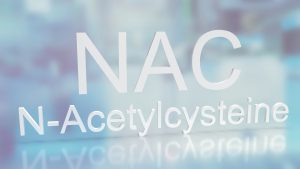Produced by the body, N-acetylcysteine (commonly called NAC) is a form of the amino acid cysteine. Because it enhances the production of the Enzyme glutathione, one of the body’s powerhouse antioxidants, NAC can both stave off disease and play an important role in boosting the immune system. Studies have shown that glutathione levels are often reduced in people with certain conditions related to the immune system.
Tag: alcoholism
Vitamin C
In the eighteenth century, seasoned sailors found that by sucking on lemons they could avoid scurvy, a debilitating disease that often developed during long voyages when fresh fruits and vegetables were scarce. When the lemon’s key nutrient was formally identified in 1928, it was named ascorbic acid for its anti-scurvy, or antiscorbutic, action. Today ascorbic acid is widely known as vitamin C.
Vitamin B Complex
A high-quality vitamin B complex supplement will provide, in one convenient pill, a full range of B vitamins, including biotin, choline, folic acid, inositol, PABA (para-aminobenzoic acid), and the six “numbered” B vitamins–vitamin B-1 (thiamin), B-2 (riboflavin), B-3 (niacin), B-5 (pantothenic acid), B-6 (pyridoxine), and B-12 (cobalamin). Combination products can simplify the process of taking individual B vitamins for a range of ailments including alcoholism, depression, diabetes, hair problems, lupus, multiple sclerosis, and stress.
Valerian
For centuries, the tall perennial herb with pinkish flowers known as valerian (Valeriana officinalis) has been enlisted to help restless insomniacs get a sound night’s sleep. Today this mild, nonaddictive sedative is quite popular both as a sleep aid and as an anxiety fighter, particularly in Germany, France, Belgium, and the United Kingdom. And in recent years its popularity has grown enormously in the United States as well.
Soy Isoflavones
Westerners have been slow to put tempeh, soy milk, tofu, and other soybean products on the table. But as evidence mounts that compounds in soy–isoflavones–have impressive health benefits, so too does consumption of this Asian dietary staple.
Milk Thistle
Healers have used the prickly milk thistle plant to treat liver ailments for more than 2,000 years. Somehow these early practitioners figured out that preparations of this purple-flowered member of the sunflower family could stimulate the flow of bile from the liver, improving digestion and various liver-related ills.
Lecithin and Choline
Lecithin is a fatty substance manufactured in the body and widely found in many animal- and plant-based foods, including eggs, liver, peanuts, soybeans, and wheat germ. Lecithin is often used as an additive in such processed foods as ice cream, margarine, and salad dressings, because it helps blend (or emulsify) fats with water. Lecithin is also available in supplement form.
Kudzu
When the twining kudzu vine (Pueraria lobata) was introduced to the United States from Asia more than a century ago, it proceeded to flourish and spread rapidly through the warm and humid southern region of the country. In fact, many now consider this tenacious, high-climbing vine a nuisance.
Glutamine
Glutamine is a nonessential amino acid. “Nonessential” means that the body can create its own supply if the diet is lacking in glutamine-rich sources, such as poultry, fish, and legumes. Few people who are basically healthy and follow a balanced diet are deficient in this amino acid, one of the most abundant in the bloodstream. But there are some important exceptions.
Evening Primrose Oil
Evening primrose oil is extracted from the evening primrose plant (Oenothera biennis), a wildflower found in North America, Europe and parts of Asia. The plant’s pale yellow flowers open in the evening–hence its common name–and its seeds bear the special fatty oil that is used in healing today.
Chromium
Chromium is an essential trace mineral that the body needs to grow properly and remain healthy. It is necessary, among other things, for the breakdown of protein, fat, and carbohydrates.
Alcoholism
Whether you’re the relative, friend, or physician of an alcoholic, following the gradual decline of a person with a serious drinking problem is an emotionally wrenching experience. A college student chugging more brews than his buddies; a business executive needing a daily three-martini lunch; an empty-nester hiding fifths of whiskey behind the vegetable oil in the pantry–they will all suffer the effects of alcohol.
